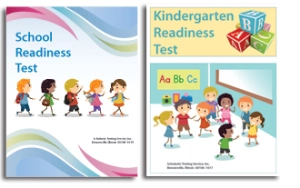Due to campus closures this past spring, it is now, more than ever, vital to identify students’ strengths and weaknesses in terms of development of underlying competencies, which are essential for early school learning.
AVAILABLE The new Preschool Progress Screening (PPS). The PPS was created as a quick and easy assessment of general education exposure, experiences and growth skills that should be present or progressing in 3-5 year olds. It was designed to report on developmental milestones, drive classroom instruction and to preliminarily identify children who may be in need of additional support or services. The PPS allows teachers to evaluate skills in three developmental areas: Language, Concepts and Motor Skills. The PPS total score will provide a developmental indicator of “OK” or “Recheck.”
Also available is the Kindergarten Readiness Test. The purpose of the KRT is to determine the extent to which each of the underlying competencies in reading, mathematics and language have been developed so that instruction can be modified to meet the needs of each student. The 8 subtests may be given in 45 minutes. Scores and skill ratings for each individual subtest are measured along with an overall readiness score and rating.
For those entering first grade in the fall, the School Readiness Test (SRT) is available for administration. The purpose of the SRT is to allow teachers to learn as much as possible about each entering student’s ability and about any factors that might interfere with his or her learning. The eleven subtests, with an optional handwriting assessment may be given in 1 hour and 35 minutes. Scores and skill ratings for each individual subtest are measured along with an overall readiness score and rating. The overall readiness score is also related to a national percentile and stanine.





